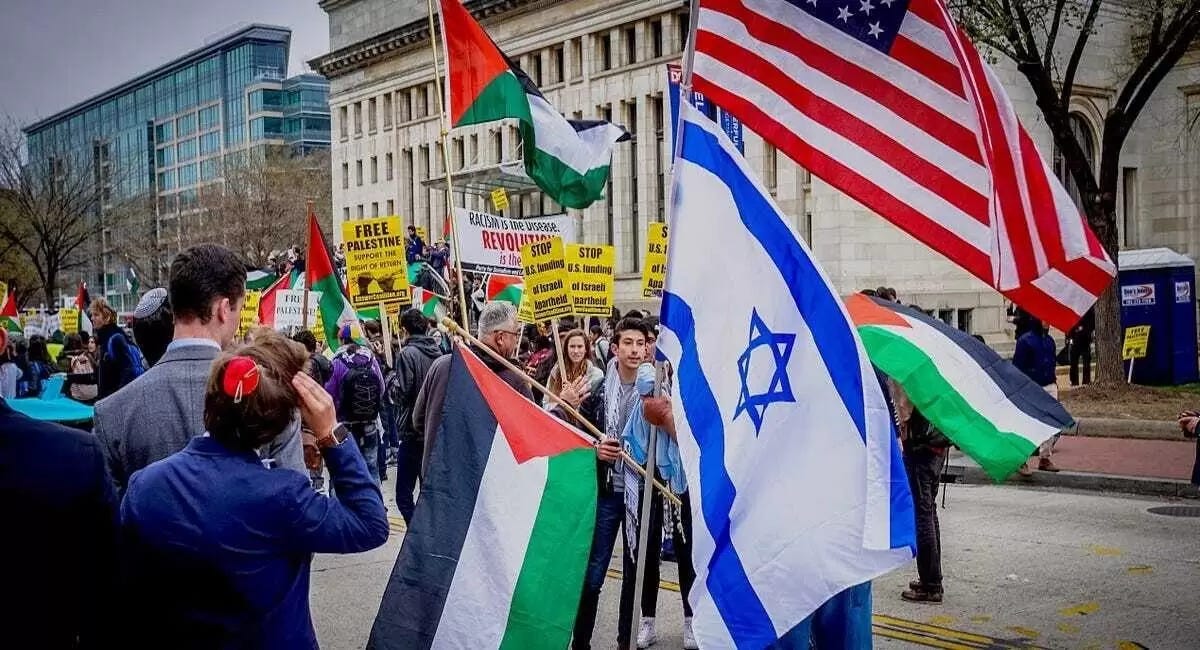Stark Generational Divide: 60% of Gen Z Americans Back Hamas Over Israel in New Poll
Survey reveals unprecedented split in U.S. public opinion on Middle East conflict, with younger voters breaking sharply from older demographics
A striking new poll has revealed that 60% of Generation Z Americans express support for Hamas over Israel in the ongoing Gaza conflict, marking an unprecedented generational divide in U.S. public opinion on Middle East policy. The survey, conducted by The Harris Poll and HarrisX between August 20-21, 2025, found that Americans aged 18-24 are the only demographic group to favor the Palestinian militant organization, which is designated as a terrorist group by the United States and European Union.
The poll of 2,025 registered voters, with a margin of error of 2.2 percentage points, asked respondents directly: "In the Israel-Hamas conflict, do you support more Israel or more Hamas?" The results illuminate a sharp age-based schism that could have significant implications for future U.S. foreign policy.
Age Lines Define Support
The generational pattern emerges with striking clarity across all age brackets. While 60% of the youngest voters support Hamas, backing for Israel increases dramatically with age. Among 25-34-year-olds, 65% support Israel over Hamas, rising to 70% for those aged 35-44, 74% for the 45-54 demographic, 84% for voters aged 55-64, and reaching 89% among Americans 65 and older.
"This represents a fundamental shift in American public opinion," according to multiple news outlets that have analyzed the survey data.
The poll also found Americans evenly split on whether Israel is committing genocide in Gaza, with precisely 50% of respondents answering affirmatively and 50% disagreeing. Additionally, 51% of those surveyed believe criticism of Israel stems from concern over Palestinian human rights rather than antisemitism.
Contradictory Polling Data Emerges
However, the Harris Poll results stand in stark contrast to other recent surveys, suggesting volatility in public opinion measurements. A Harvard CAPS-Harris poll conducted in July 2025 found that 77% of registered voters supported Israel in the Gaza war, with only 23% backing Hamas.
Most remarkably, that same Harvard poll indicated 60% of Gen Z voters actually supported Israel over Hamas—a complete reversal of the August Harris Poll findings. The Harvard survey noted this represented "a notable jump from 52% support for Israel in March" among young Americans.
"Support for Israel rises with age, reaching 92% among voters 65 and older," the Harvard poll reported, while finding that 80% of all voters believe "Hamas must release all remaining hostages without any conditions or face serious consequences".
Social Media and Information Sources
The conflicting poll results underscore the complexity of measuring public opinion on the Middle East conflict, particularly among younger demographics who consume news in a manner distinct from older generations. According to Middle East Eye, "The survey did not ask participants whether they support Palestinians more broadly, despite Israeli leaders repeatedly framing their war as being against all Palestinians, not only Hamas".
Experts suggest that Gen Z's information consumption patterns, heavily influenced by social media platforms like TikTok and Instagram, may lead to different perspectives on the conflict compared to older Americans who rely more on traditional news sources.
Methodological Questions and Context
The dramatic difference between the two major polls raises essential questions about survey methodology and timing. While both polls surveyed registered voters, the specific wording of questions, sample composition, and polling periods may account for the disparate results.
Previous Pew Research data from April 2024 indicated that "younger Americans stand out in their views of the Israel-Hamas war" and are "less likely than older people to see increased discrimination against Jews since the start of the war".
The conflict in Gaza began following Hamas's October 7, 2023, attacks on Israel, which killed approximately 1,200 people. Israel's military response has resulted in over 63,400 Palestinian deaths, according to Gaza health authorities. The International Criminal Court has issued arrest warrants for Israeli Prime Minister Benjamin Netanyahu and former Defense Minister Yoav Gallant for alleged war crimes.
Political Implications Loom
The generational split revealed in polling data carries significant implications for American politics and foreign policy. As Gen Z voters continue to mature and participate more heavily in elections, their views on international conflicts may increasingly influence policy debates and candidate positions.
The polling data suggests that traditional bipartisan support for Israel in the United States faces potential challenges as younger voters bring different perspectives to the political process. Whether these generational differences persist or evolve as Gen Z ages remains an open question that could reshape America's approach to Middle East diplomacy in the coming decades.
The contradictory nature of recent polling highlights the need for ongoing research to comprehend how Americans across all age groups perceive this complex international conflict and its implications for U.S. foreign policy.



